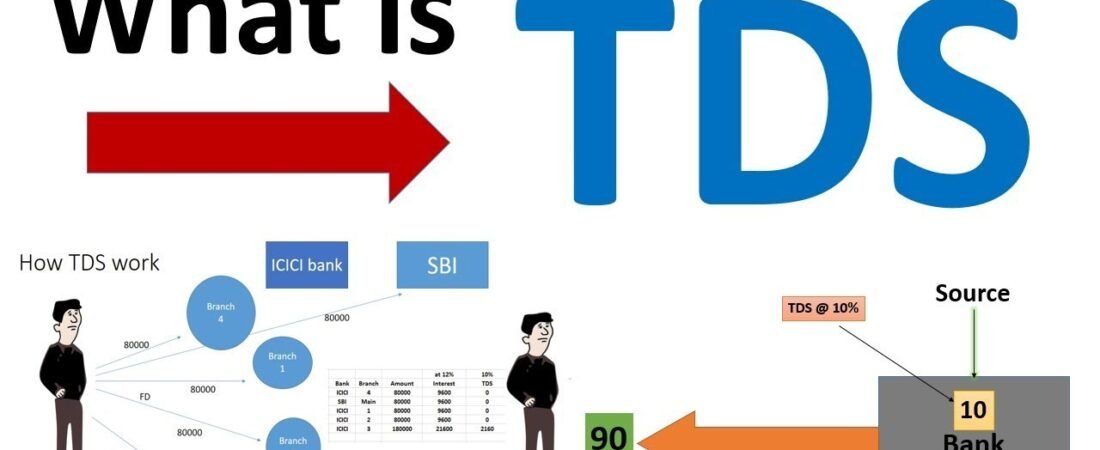Tax Deducted at Source (TDS) is a taxation mechanism where a specified percentage of tax is deducted by the payer at the time of making certain payments, such as salaries, interest, rent, commissions, and professional fees. This deducted amount is then remitted to the government on behalf of the payee. The primary objective of TDS is to collect tax at the very source of income, ensuring a steady inflow of revenue to the government and minimizing tax evasion.
Key Features of TDS
-
Applicability: TDS is applicable to various payments, including:
-
Salaries
-
Interest payments by banks
-
Rent payments
-
Commission and brokerage fees
-
Professional and consultancy fees
-
Payments to contractors and sub-contractors
-
Purchase of immovable property
-
Dividends
-
Lottery and game show winnings
-
Insurance commissions
-
Payments to non-resident sportsmen or sports associations
-
Repurchase of units by Mutual Funds or Unit Trust of India
-
Compensation on acquisition of certain immovable property
-
Interest paid by Infrastructure Development Funds to non-residents
-
Interest paid by Indian companies on foreign currency borrowings
-
Other payments to non-residents or foreign companies Wikipedia
-
-
Dedicator and Deducted: The person making the payment is termed the ‘deductor’, and the recipient is the ‘deducted’. The dedicator is responsible for deducting the tax and depositing it with the government
-
TDS Certificates: After deducting and depositing the tax, the deductor provides the deductee with a TDS certificate (such as Form 16 for salaried individuals or Form 16A for non-salaried payments), which serves as proof of the tax deducted
-
TAN Requirement: Entities responsible for deducting TDS must obtain a Tax Deduction and Collection Account Number (TAN) and quote it in all TDS-related documents. Wikipedia+3Wikipedia+3Wikipedia+3
-
Claiming TDS: The deducted tax reflects in the deductee’s Form 26AS and can be claimed as a credit while filing income tax returns, reducing the overall tax liability.
Importance of TDS
-
Ensures Regular Tax Collection: By collecting tax at the source, TDS provides the government with a steady flow of revenue throughout the year.
-
Reduces Tax Evasion: Since tax is deducted before the income reaches the recipient, it minimizes the chances of tax evasion.
-
Simplifies Tax Compliance: For taxpayers, TDS simplifies the process of paying taxes, as a portion is already deducted, reducing the burden during the annual tax filing.
In summary, TDS is a crucial component of the taxation system, promoting timely tax collection and ensuring compliance from both payers and recipients.
